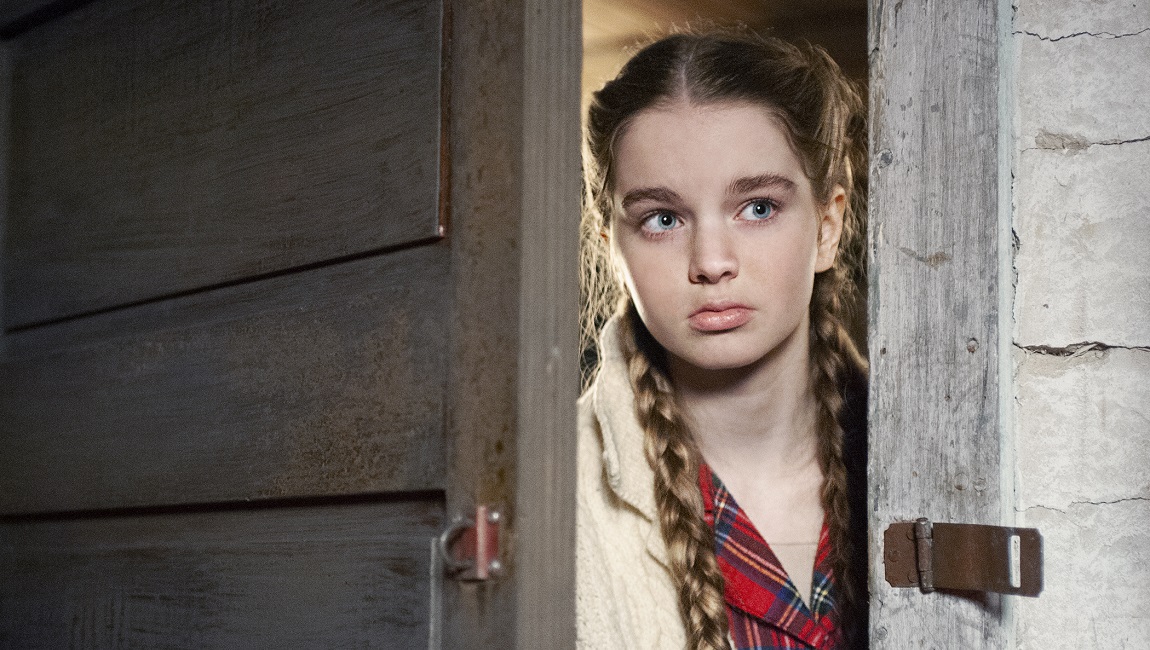Hunter Hunter begins as a simple look at a family living off-the-grid, but quickly develops into a gory thriller that isn’t for the faint of heart.
It wouldn’t be entirely correct to call the new survival-thriller film Hunter Hunter a bait-and-switch; there’s no twist, exactly, but it does end in a very different place than it begins, first complicating, then ultimately abandoning its original narrative impetus for something altogether darker. Initially crafting a portrait of an unconventional family — fur trappers that live deep in the woods, purposefully eschewing most human contact — writer-director Shawn Linden gradually introduces new characters, each of whom expands upon or otherwise invade the cloistered Edenic space occupied by this familial unit. An almost unrecognizable Devon Sawa is Mersault, a tough, sometimes severe man who is teaching his teenage daughter Renee (Summer H. Howell) the tricks of the family trade, while wife Anne (Camille Sullivan) tends to their home and cooks whatever game Mersault can hunt or trap. Times are tough, as fur prices have gone down while living expenses have gone up, and Anne has grown weary of their hermetic, unsustainable way of life. For her part, Renee, eager to learn at her father’s feet, seems perfectly content to ignore the traditional lifestyle of a teenager. Into this domestic conflict comes a rogue wolf, who is poaching Mersault’s traps and encroaching farther and farther into the family’s land. There’s some kind of traumatic history here, as Anne alludes to past encounters with the wolf and is immediately terrified of it. Linden sets all this up with terrific efficiency and a sharp eye for unobtrusive realism. There are long stretches of father and daughter hiking, tracking, baiting traps, and skinning and tanning hides, conveyed with a fastidious attention to detail (it must be noted that those wary of even fictional depictions of animal violence should stay far, far away from here).
The family dynamic is also carefully delineated; no one here is a villain, but Anne comes across as pragmatic while Mersault becomes more obstinate. In a fit of hubris, Mersault decides to trap the wolf himself instead of going to the authorities, leaving Renee and Anne by themselves while he begins his days-long trek. It’s here that Linden starts juggling multiple threads and points-of-view, as Anne repeatedly fails to reach Mersault via walkie talkie and fears the worst, while Mersault stumbles across a gruesome scene buried deep in the heart of the forest. When Anne visits the local police station, two more characters enter the story, although it’s unclear at first what narrative purpose they serve. Linden isn’t afraid to leave our main protagonists offscreen for long swaths of time, a seemingly odd choice that comes into focus as the film progresses. To say more would be criminal, as Linden turns the screws in unexpected ways while the film marches inexorably towards a brutal, frenzied climax that rivals Bone Tomahawk for its inclusion of near-unwatchable acts of violence. Ultimately, there’s more to fear out there than wolves, and our unfortunate family learns too late that they were right to shun humankind.
Published as part of Before We Vanish | December 2020 — Part 2.







